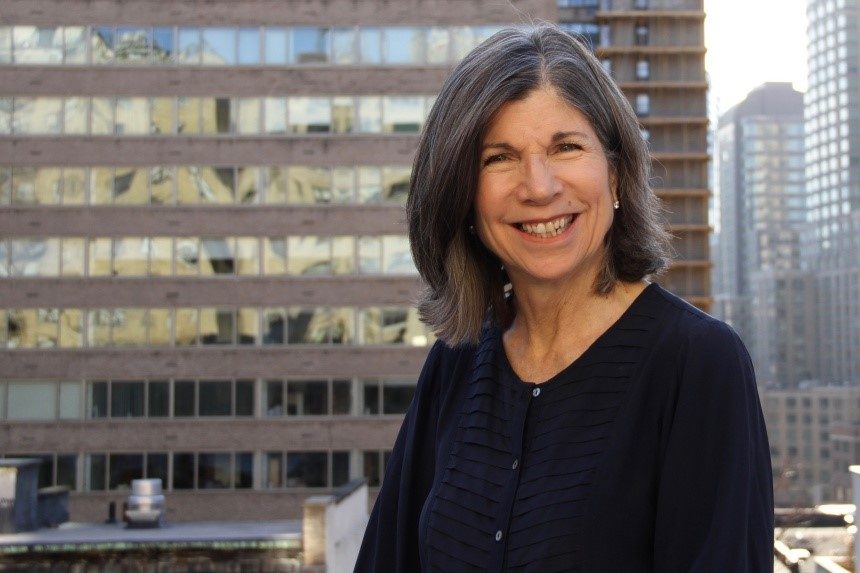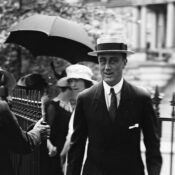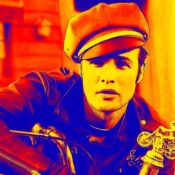Anna Quindlen is a Pulitzer Prize winning journalist and the author of numerous works of nonfiction and fiction, including the novels One True Thing and Black and Blue. Her most recent book is Write for Your Life, which encourages all of us to write.
Hugh Delehanty: What inspired you to write about writing now?
Anna Quindlen: I think we’re losing something. One hundred years ago, everybody wrote. Everybody wrote letters. Lots of people kept journals. People wrote down the events of the day. Today if you say to somebody you meet, “That’s an interesting story. You should write it down,” their first response is, “I’m not a writer” — and by that they mean that writing now belongs to those of us who do it for a living. I think that’s wrong. I think writing should belong to everybody and I think everybody should write because it’s good for our history and it’s good for our psyche.
HD: Is that what you mean when you say that writing “can normalize the abnormal and feed the spirit”?
AQ: I have data. I’m so excited. The other day the president of Barnard College, Sian Beilock, who’s a psychologist, told me that she’d just done an experiment with students who were experiencing a lot of anxiety around a math test. They divided the students into two groups. One group was told to go off and study for the test. The other group was told to write about their anxiety, and — bingo! — the group that wrote about it did better on the test. There’s something about stopping and taking the time to write out what you’re experiencing emotionally, which not only connects you to it but changes its power over you.

HD: Tell me about your writing journey.
AQ: When I was young, even in grade school, I remember being in the library and looking around to see where my book would fall on the shelves. It was between Marcel Proust and Ayn Rand. But I couldn’t figure out how to be a novelist and earn a living. So, I went into the newspaper business and — wow — I’m not sure I’ll ever have another job as great as being a general assignment reporter.
HD: What did reporting teach you about writing fiction?
AQ: Most of what I needed to know. Being a reporter taught me how to write even when I didn’t feel like writing. People ask me all the time about writer’s block. Can you imagine saying to the city editor, “I’m blocked today”? Being in a newsroom also taught me to write tight, look for telling details, and write dialogue that sounds the way real people talk.
HD: What is your creative process like?
AQ: It’s based on avoidance. Everything I can do not to write. I’m someone who hits her writing biorhythm around nine or ten o’clock, and if I’m working on a novel, I can usually go for only two or three hours before the edges of my imagination start to blunt.
HD: What’s the hard part for you?
AQ: The whole thing. I sit down pretty much every day convinced that it’s not going to go well. Writing as a profession is a constant act of confidence. But there’s a psychological trick I use to get myself going. I never knock off at the end of a chapter or a paragraph or a sentence. I always knock off halfway through a sentence because the next morning when I sit down, I can always manage to finish an existing half-sentence. If I sat down and saw that I’d finished an entire chapter and had to start a new one, I could be paralyzed for days.
HD: Let’s talk about a critical turning point in your life — when your mother died at age 41 while you were in college. What impact did that have on you?
AQ: My mother said to me [before she died], “Now you’ll have something to write about.” I was leveled by that, and yet, she saw the future. Her death is a subject that I’ve written about a lot. Sometimes I feel guilty about it because it makes me feel as though I’m using her death to advance my professional career. On the other hand, it keeps her alive for me. I’m an utterly different human being than I would have been had Prudence Quindlen not died when I was 19. I don’t know who that other person would have been, but I would be happy to be her if, in exchange, my mother could have lived to be an old woman. It’s as simple as that.
I think I have a very different attitude about aging than most of my friends because I feel so blessed to have done all the things that my mother would have loved to do. I got to dance at my son’s wedding. I got to be there when the grandchildren came home from the hospital. And if I get to be a very old woman, maybe I’ll dance at my grandchildren’s weddings, too.
HD: Do you think women handle aging better than men?
AQ: When the women of my generation wound up in positions of power and influence, they tended to be a bit surprised by it. But when the men didn’t wind up in positions of power and influence, they tended to be very surprised and not at all pleased. I think that dichotomy means that aging is easier for us women.
One of the single most enraging experiences that I’ve had over and over again is going to a memorial service where it’s said for the umpteenth time, “When Joe got ill, he finally realized what really mattered.” I want to stand up and scream, “Excuse me! You’re supposed to learn what really matters 30 years before that.”
HD: Any tips for older writers?
AQ: What do you really love? Write about that. A friend of mine says her writing prompt is, “I don’t know what to write about but …” It’s that “but” that gets her writing.
I was online with a group of students a couple of months ago and one of them said, “I’m going to say something that I’m embarrassed to say about writing — I’m afraid.” I said, “So am I.” Her face just lit up. I think that we’ve given people the impression that if you write for a living, it’s easy, and I think that’s a mistake. They need to understand that writing can be really hard, but when you’re done, it can be really valuable and even transformative.
HD: In your book, you say that writing allows you “to write a different ending for your life.” How so?
AQ: I think that there are people who manage, through writing, to understand themselves in a way that they didn’t understand themselves before. It enables them not only to imagine themselves differently, but to become quite different than they’d been before.
HD: Has that happened for you?
AQ: Occasionally, I’ve written a sentence and thought, “Oh my God, that’s my deepest feeling. My deepest secret.” Until I wrote about it, I didn’t realize that one of the things that I’d done for a good part of my life was live for two. I’d carried my mother on my back through all the decades she didn’t get to experience. I probably understood that on a subconscious level, but that’s what writing does: it takes your subconscious, pulls it to the surface, and makes you confront it in a new way.
HD: Do you think it was guilt that drove you?
AQ: I think my mother would have wanted me to find joy in all the passages of life, including the ones that she didn’t get to experience. I was keenly aware of the wind of her at my back saying, “Live! This is what I wanted to hold onto, but didn’t get a chance to. Don’t let it slip through your fingers.”
Become a Saturday Evening Post member and enjoy unlimited access. Subscribe now



